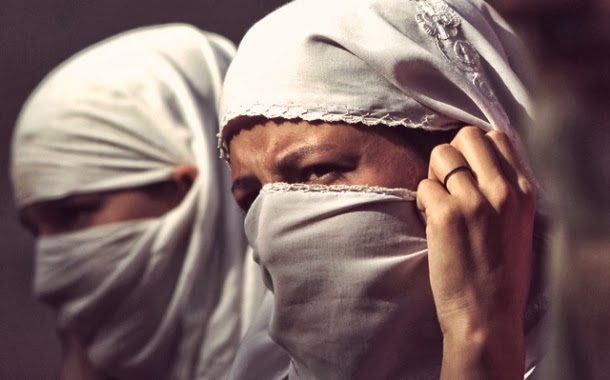“...that which binds the individual to the family, the
tribe, and the ancestors. Most important
are the ancestors. When they turn their
backs on you, God turns his back, too.”
I tell him about Shinar and the burden of shame she seems to
bear. He affirms this.
“You should have
killed her,” he says, “instead of protecting her.”
The crime I have committed, Elihu explains, is called...al satwa. It means to bring shame upon someone by
performing an act of responsibility that they have failed to perform
themselves.
“If a stranger stops at my father’s gate,” Elihu says, “and
my father has no food to offer, this is unfortunate but no crime. If our neighbor, however, then provides a
meal to the stranger, he has committed al satwa against my father. Do you understand, Matthias? The neighbor has shamed my father before the
stranger.
This is a terrible transgression in our country. The crime is even worse in your case, for you have rescued a sister when her brother should have done so. You have shamed him mortally, do you see?”
“Well, where the hell was he,” I ask, “when Shinar needed him? I wouldn’t have had to do anything if he had been there to look out for her!”
This is a terrible transgression in our country. The crime is even worse in your case, for you have rescued a sister when her brother should have done so. You have shamed him mortally, do you see?”
“Well, where the hell was he,” I ask, “when Shinar needed him? I wouldn’t have had to do anything if he had been there to look out for her!”
“Exactly.”
“He should be grateful to me! Haven’t I defended his sister? Haven’t I saved her life?”
No, says Elihu. “You
have shamed this woman’s kin by doing for her what they should have done
themselves--and for that, they can never forgive you. As for her, she is the vehicle of this
shame. The ancestors have
witnessed. This is what she experiences
now, being with you. And if you evoke feeling in her, her shame is double.”
“In other words,” I say, “to an Afghan it would be
preferable that Ash the muleteer continue to beat and abuse Shinar, even kill
her, than that I should help her.”
“Indeed.”
“Or that ...some other scuff should rape and outrage her.”
“Precisely,” says Elihu.
All I can do is shake my head.
“Every act of kindness you perform toward this woman will
only drive her deeper into shame.”
(Excerpted from Steven Pressfield's The Afghan Campaign)
A couple of millenia have passed, and things haven't really changed over there. And things won't change. Women are still subject to tertiary citizen status by ego-maniacal men whose oppression is supported by religious texts. Or so they claim. Well, religious texts with AK-47s and RPGs. In 2,000 years, the only change has been the weaponry, because the savagery wears the same face, the same clothes, exhales the same lies. The country was a mess then, it's a mess now.
As I was reading Pressfield's book--and it is a good book, it's exciting, informative, monstrous in its realistic portrayal of the cruelties of war--it was impossible not to think of the current day's predicament of Western armies battling the Afghan tribes high in the mountains, or in the streets of Kabul or Herat or Kandahar. It was impossible not to see the perfect comparisons between Alexander's troops in 330-327 B.C. and the Russians in 1979-1989 A.D. Whether Bactrian tribes or Taliban, Sogdians and Pactyans or the mujahideen, there is still the invader, and there is still the tribe.
Alexander was chasing Oxyartes, Bessus, Spitamenes; Brezhnev, Andropov and their boys were after Massoud and Haqqani; we were after Osama bin Laden & friends. In each case, although I benefit from over 2,000 years of historical record, I wonder continuously what was Alexander's point then, and what is our point now, in being there?
Pressfield's book is not only a story of 330 B.C., it's a story of our time as well.




